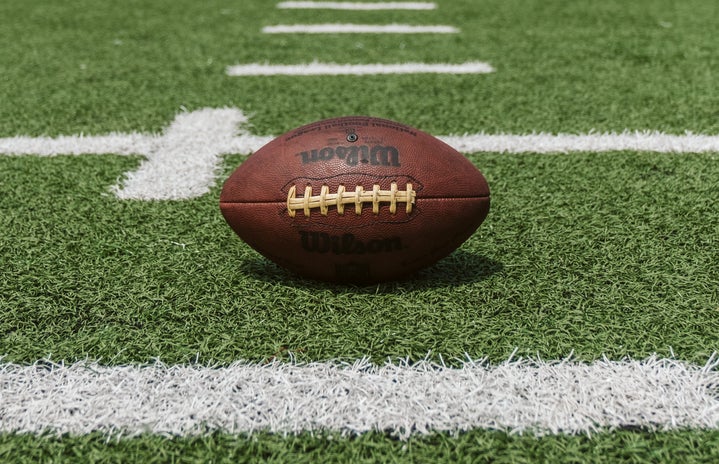Learn the game of football in simpler terms!
This is for all of the girls who know a football player, are interested in learning the game, or have someone who never stops talking about their fantasy football team (and have no clue what any of it means). Here’s all of the basics!
The Game
An NFL football game is played in four quarters that are each 15 minutes long. And no, they don’t actually take only 15 minutes, the clock will often stop in between plays and create longer quarters. The goal is to score points, and whichever team has the most points after the 4th quarter wins! However, if the game is tied, they may go into overtime which basically extends the game.
When watching an NFL game, you might be curious as to why these random numbers keep changing at the bottom corner of your TV screen with a term called “downs”. Well, at least that’s what I remember thinking before learning the rules of the game. Watching a game you’re going to hear that term extremely often. There are first, second, third, and fourth downs. Think of downs as chances! Basically, a team has four chances to move the ball 10 yards forward. For example, if a team is at a first down they still have three more chances! If a team is on their fourth down, it’s their last opportunity. If the team successfully moves the ball 10 yards forward before running out of chances, the team’s downs/chances will reset back to their first. Keep in mind, the team wants to move as far forward as possible! When unsuccessful or out of chances, the ball will be given to the other team.
The Point System (in terms)
a.) Touchdown- When a team scores into the other team’s end zone (both located on the opposite sides of the field). They get 6 points!
b.) Field Goal Attempt- When a team does not think they will be able to score a touchdown, they may try a field goal attempt. A field goal is a large, yellow, fork-like figure located at both ends of the field. If the team with the ball thinks they are close enough to it, they will have their kicker go onto the field and kick the ball into the fork. If successful, they will be rewarded with 3 points.
c.) Extra Point- After scoring a touchdown, the scoring team has a choice to make. They can either kick an extra point or try for a two-point conversion. When attempting an extra point, a
kicker will enter the field and kick the ball inside of the field goal. If they miss, they won’t receive the singular point.
d.) Two-Point Conversion- If the scoring team decides to try a two-point conversion instead of the extra point, they will attempt to get the ball into the end zone again just like they did for the touchdown. This will be from a short distance, and they will be rewarded two points.
The No No’s
If you’re watching a football game with someone who knows what’s going on and they suddenly seem quite angry or upset, oftentimes the team or player they are supporting has made a mistake. Here are some commonly made mistakes:
a.) Interception- When a pass directed forward was caught by a defender on the other team.
b.) A Fumble- When a player who has the ball loses it, and the other team takes it! For example, a player may drop the ball after having already caught it.
c.) A Turnover- When a team loses possession of the ball without kicking it.
d.) Sack- When the quarterback does not get the chance to throw the ball before being tackled down behind their starting position (line of scrimmage).
e.) Pick Six- A pick-six is terrible for the team with the ball, but great for the one without it! When this happens, the other team intercepts the ball and scores a touchdown with it in the same play.
When a team or player breaks a rule of the game, it’s considered a foul. Here are just a few examples of common fouls:
a.) False Start- When someone on the team that has the ball begins moving before the ball is moved.
b.) Holding- When a player tries to hold onto someone’s uniform to prevent them from moving properly.
c.) Face Mask- When a player grabs someone’s face mask or the front of a helmet.
d.) Unnecessary Roughness- Being too rough towards an opposing player.
e.) Unsportsmanlike Conduct- When a player breaks common conduct of respect or fairness.


